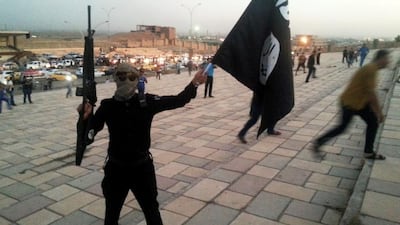For three years, pundits and policymakers have argued in favour of arming Sunni tribes to fight ISIL. They are focusing on the wrong side of the battle – tribes are foot soldiers for a much larger, vital war.
More than holding defensive lines in western Iraq or pushing towards Raqqa, tribes can lead the ideological war against ISIL, countering its narrative across the globe and cutting off the group’s fighter flow at its source.
Tribes are key to preventing the next generation of young men from joining the ranks of ISIL.
Some tribes are already answering the call.
In Jordan, after tribes learnt that their sons carried out a deadly ISIL attack in the south of the country killing 10, they had a united response: disown them and discredit them.
Jordanian tribes did not open a mourning tent, the attackers were not given a burial. Their names would never be uttered again, except in scorn and as a warning to members who may think of taking a similar path to extremism.
As Sheikh Bashir Abu Rumman said after his tribe denounced two members who took part in the December attack: “An attack on one Jordanian is an attack on all tribes.”
In Saudi Arabia, tribal leaders take part in the country’s deradicalisation programme at the Mohammed bin Nayef Centre, offering up radicalised members for treatment, and helping their reintegration into society.
In Iraq, in addition to fighting alongside the Iraqi army, several tribes have countered ISIL propaganda by sharing images of extremists’ massacres.
Extremism experts hail tribes as “influencers” – groups that can use their hierarchy, their prominent role in social rites of passage and their cohesiveness to influence and challenge the behaviour of their members.
By having a set of shared values, tribes can speak with authority about what is moral and immoral, what is appropriate and inappropriate. More than any state or political party could ever dream, tribes have the legitimacy to say terrorism is socially, culturally and religiously wrong.
And tribes have an even more effective tool: consequences. Tribes can threaten to excommunicate radicalised members, severing all social ties.
As many in tribal societies rely on tribes for marriage, employment, social status and even university placement, excommunication can seem worse than a death sentence.
By making members choose between ISIL and the tribe, making clear that there is no grey area for “supporters” or “sympathisers”, tribes can go a long way to tip the scales in favour of moderation.
In Jordan, tribes across the country hold “interventions” with members who express sympathy with ISIL, debunking its claims as a so-called Islamic group and providing a clear choice: it is either the tribe or ISIL.
It is a bet that blood is thicker than ideology.
Yet the biggest role for tribes in the war against ISIL is more spontaneous and unscripted.
Tribes have a platform unrivalled in the Arab world. In Jordan, tribes use weddings, engagements, funerals and even university graduations as an opportunity to denounce ISIL to a captive audience.
With hundreds of young men present, elders use social gatherings as an opportunity to dissect ISIL’s narrative and claims one by one, and expose it for the apocalyptic cult it is.
Social occasions give tribes a chance to spread their message in a way no nuclear family, society or political party could. With the themes of life and death as their backdrop, tribes can challenge the path of radicalised members and instil the hope for a fuller life away from ISIL.
Yet, perhaps tribes’ greatest strength is their neutrality. As clans are not governments or political parties, they are largely seen by followers as immune to politics and pressures from foreign groups or states – whether it be the United States or regional powers.
Clans are seen as more independent and therefore less likely to peddle the agendas of foreign states or political groups.
When a government denounces ISIL or calls for war against the jihadist group, it can be seen as serving the policy goals of the US, Britain, Russia or another great power.
Yet when a tribe rises up, it is the voice of the people.
Tribes have the legitimacy, the independence and the influence to take on ISIL.
Rather than handing them arms, it is time to give them a voice.
Taylor Luck is a political analyst and journalist in Amman

